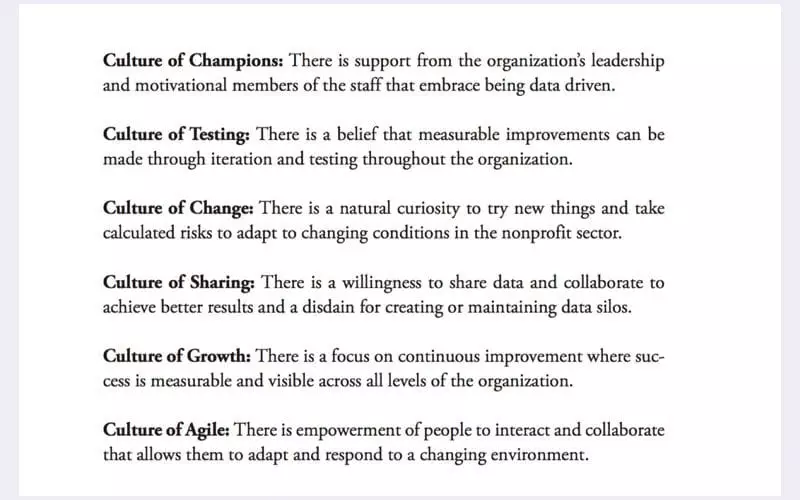REVIEW: Data Driven Nonprofits
I’ve read books about data that bored me to tears about the intricacies of database management. I’ve read others that that moved me to tears with stories of how great data science has changed lives [the opening chapter of Gillian Tett’s Silo Effect springs to mind].
So it was with a mixture of nerves and optimism that I agreed to review Data Driven Nonprofits by Steve MacLaughlin. Certainly the title hits the “yes I’d like my organisation to be like that” mark – but I admit I was also worried that it might just be one big advert for Blackbaud and their software services. Thankfully I found it an engaging and useful read.
The book opens with a series of gentle tales about historical fundraising efforts in the US, but soon gets to the here and now, and doesn’t pull punches about the current state of data use in our sector: “the non-profit industry by and large is innumerate… it doesn’t guide itself by metrics in many ways that are meaningful”. Ouch.
As someone attempting to drive change within an established non-profit what I want from an ‘expert’ read is a combination of proof and advice. Historical stories add flavour, and spouting the theory makes us look brainy, but actual hard evidence of what works and what doesn’t is what really moves us forward. In terms of proof Data Driven Nonprofits does a decent job. It weaves in a series of compelling stats about the need for good data ‘health’: “donors are 10% less likely to make a donation if their name is misspelled… and those that do decrease their gift by avg 12%”.
Case studies
More importantly it provides case studies from a range of nonprofits (a handful of which are from the UK). If there’s one main criticism I would make about the book, it’s that it would have been good to tighten up these case studies and bring some of them in earlier.
In terms of advice the book spells out a series of – often entertaining – truisms, from the importance of establishing value metrics over vanity metrics (why it’s not about how many Twitter followers you have), to the need for good benchmarking: “If you and I were being chased by a bear, then I wouldn’t try and outrun the bear. I would just try to outrun you. That’s benchmarking”. However, more advice on how to take small steps in the right direction would have been welcome.
Another compelling aspect in Data Driven Nonprofits is its categorisations of different types of data-focused cultures. In reality I think there are blurred boundaries between these but I can see practical use in assessing whether an organisation’s data capability is or should be driven by a:

From Data Driven Nonprofits
Visualising data
Where could the book have gone further? When talking about something that is perceived as nerdy as data, having easy to grasp snippets is a no-brainer. The handful of visual pullouts in the book added useful emphasis to some key points – but their absence at other junctures – particularly in the latter half of the book feels like a missed opportunity to emphasise the power of visualised data.
Overall if what I wanted from this book was ammunition to help drive change in my own organisation, it mostly delivered. I have some new evidence to help me build my own internal case for data-driven transformation: plus some snappy quotes –
Advertisement
“If the statistics are boring, you’ve got the wrong numbers”
Edward Tufte
I would have loved for the book to cover a broader view of data beyond fundraising, and to give more short examples from organisations like mine. But as a fundraiser’s guide to the power of strategic data use over tribal learning – it’s a handy addition to the bookshelf.
Data Driven Nonprofits
by Steve MacLaughlin
Saltire Press
256 pages
£15 (paperback), £12 (Kindle)
Julie Dodd is Director of Digital Transformation and Communication at Parkinson’s UK. She is a leading thinker and coach on how technology can help for non-profits to deliver social impact, and is the author of ‘The New Reality’ – a major cross-sector study in this field.




